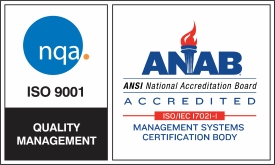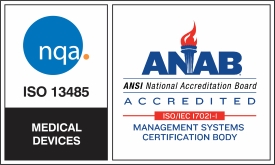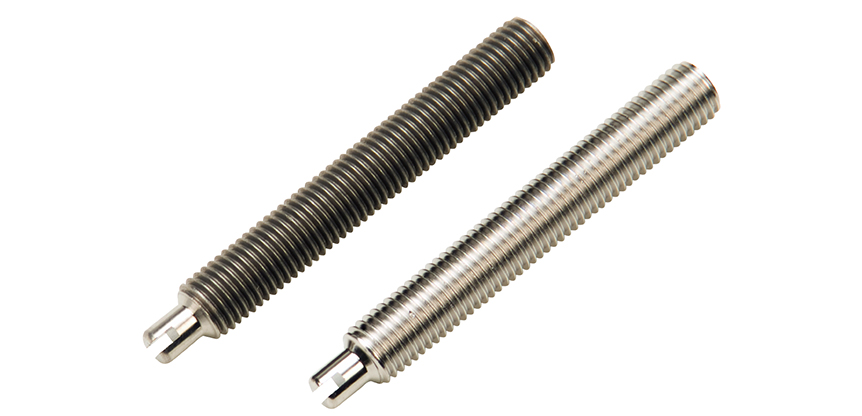The biocompatibility of medical devices , implants and instruments to ensure that every part that comes into contact with the human body poses no risk of irritation or harm is a fundamental requirement for medical manufacturers.
, implants and instruments to ensure that every part that comes into contact with the human body poses no risk of irritation or harm is a fundamental requirement for medical manufacturers.
Biocompatibility requirements also apply all the way through the manufacturing chain. As a partner to our medical manufacturing clients, our metal finishing processes for surgical instruments, implants and other medical parts must meet stringent requirements for biocompatibility.
ISO 10993 Part 1 standards are a key regulatory standard designed to ensure the biocompatibility of parts that will come into contact with living human tissue, including skin, tissue, bone and blood.
Our electropolishing processes are compliant with these important standards to ensure that medical device parts are finished using processes and materials that pose no threat to the biocompatibility of the finished product.
Biocompatibility Considerations & Testing
Biocompatibility considerations under ISO 10993 Part 1 include:
- Final finished “as used” form of the device
- Raw materials
- Manufacturing process
- Impact of packaging
- Impact of sterilization if applicable
- Risk assessment prior to testing
Biological evaluation tests for biocompatibility can include testing for:
- Cytoxicity
- Sensitization
- Irritation or intracutaneous reactivity
- Implantation
- Material — medicated pyrogenicity
- Hemocompatibility
- Acute systemic toxicity
- Subacute/subchronic toxicity
- Chronic toxicity
- Genotoxicity
- Carcinogenicity
ISO Gold Standard Certification for Medical Devices Worldwide
Able certification under IS0 13485 is also a critical component of the work we do for medical device manufacturers. ISO 13485 certification is the gold standard for manufactured medical devices worldwide.
In addition, Able processes also meet the standards established under ASTM F86 and ASTM A967 for metal finishing processes to surgical implants for increasing corrosion resistance and ensuring the elimination of surface contaminants like free iron and surface defects.
Surface imperfections left behind by various machining processes can become initiation sites for corrosion and pathogens. Electropolishing’s ability to eliminate these hazards and leave parts with a uniform microfinish are key to the safety and biocompatibility of surgical implants.
Diligent compliance with the requirements of biocompatibility and medical device manufacturing standards, along with our own stringent quality assurance processes, provide the reliability and credibility that Able Electropolishing has established with a long list of medical manufacturers.
A few examples of our work for our medical manufacturing clients include:
- A cardiovascular implant manufacturer, working on a tight deadline as part of the FDA approval process, needed to determine the precise amount of stock removal that would produce the best results for a tiny arterial clip made of Nitinol. We made our engineering staff available on a tight deadline for a series of tests to evaluate the microfinish improvement at various levels of stock removal. The Able team worked closely with the client to learn much more about the part application, critical features, and specific measurements required to determine the thickness before and after electropolishing. Our efforts and collaboration in this case resulted in a safe and effective part and left our client on track for FDA approval on a challenging timeline.
- During Illinois’ Shelter in Place order in 2020, we helped ensure the continued production of critical parts for medical industry clients. For one client working to alleviate the shortage of ventilators, we expedited the electropolishing of parts used in the manufacture of this critically needed equipment. This project called for the expedited electropolishing of more than 1,000 ventilator components needed by the next morning. As we do for each part we electropolish, we used our on-site tooling capability to create custom racking for the parts. This particular part required the additional step of masking to ensure that only a certain area of each part was exposed for electropolishing. Robotic automation helped ensure the speed and consistency of the process.
The Right Metal Finishing Partner for Your Medical Parts
The benefits of electropolishing for medical manufacturing go far beyond biocompatibility. Electropolishing provides medical manufacturers with a wide array of other advantages, including:
- optimized cleanability
- enhanced pathogen resistance
- enhanced corrosion resistance
- microdeburring
- microfinish improvement
At Able, our processes also include consultation in the design phase that can help eliminate flaws that can impede cleanability.
Such results make the choice of electropolishing an easy one for many medical manufacturers.
The choice of Able Electropolishing is even easier. A pioneer in the field with decades of experience and innovation in collaboration with engineers across a wide array of industries, Able has built a reputation for consistently high-quality results and unmatched customer service.
Reach out to schedule a technical review session to discover the benefits of electropolishing for your critical metal parts.





